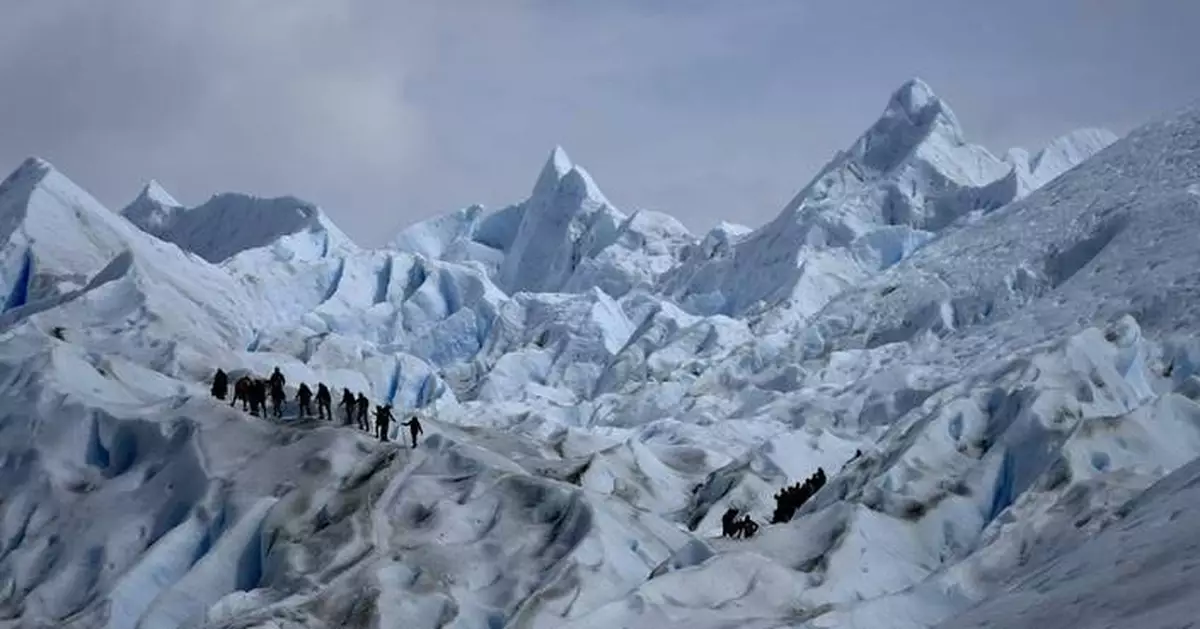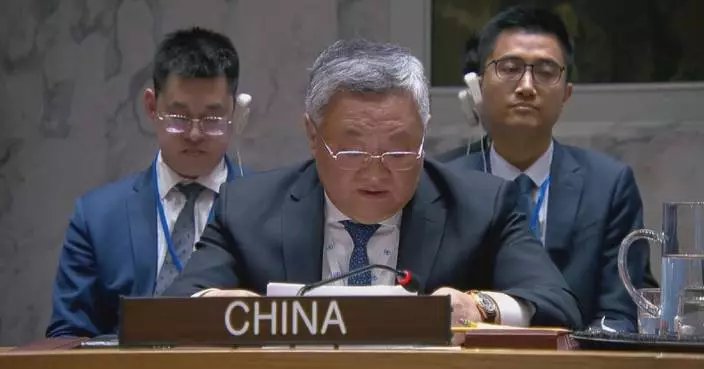EL CALAFATE, Argentina (AP) — A creak, a thunderous roar, and then the plunge: Argentina’s Perito Moreno Glacier calves several times a day, as hundreds of visitors strain to see which side it will break off and capture the moment on their screens.
The event, known as calving, is a normal occurrence, said Victoria Pacheco, a tour guide in El Calafate, in Argentina’s Patagonia region, during a hike three days before the inaugural World Glacier Day on Friday. Declared by the U.N. General Assembly in 2022, the March 21 celebration aims to promote the conservation of glaciers, a crucial source of drinking water.
Summer draws tourists to viewpoints just 500 meters (1,600 feet) from Perito Moreno, offering panoramic views of the glacier against the Andes. Many also embark on guided treks, donning crampons and helmets to explore the glacier’s rolling terrain and peer into centuries-old, deep blue crevasses.
Marcia Fortuna, a 46-year-old from Santa Fe, Argentina, recently explored the region’s glaciers, visiting Upsala and Spegazzini. “It’s tiring but worth it,” she said, describing the experience as “beautiful and awe-inspiring.”
While there are no definitive studies showing significant changes in Perito Moreno, experienced guides like Pacheco report a visible decline in the glacier's ice. The glacier’s famous ice dam last formed in 2018, when the ice pushed against the Magallanes Peninsula, temporarily blocking a section of the lake before eventually collapsing.
When the glacier ruptures, it creates a stunning natural spectacle, described by National Geographic as a “thunderous, slow-motion drama” as massive ice towers topple into the water, sending waves rippling across the lake.
According to UNESCO, glaciers are “fragile mirrors” of climate change, reflecting rising global temperatures through their retreat and ice loss. The organization warns that unless greenhouse gas emissions are curbed, half of the world’s glaciers could disappear by 2100, threatening freshwater supplies and ecosystems.
The UN warns that glaciers worldwide are melting “faster than ever.” It designated March 21 as World Glacier Day, highlighting their crucial role in freshwater supply and urging conservation efforts.
Follow AP’s coverage of Latin America and the Caribbean at https://apnews.com/hub/latin-america
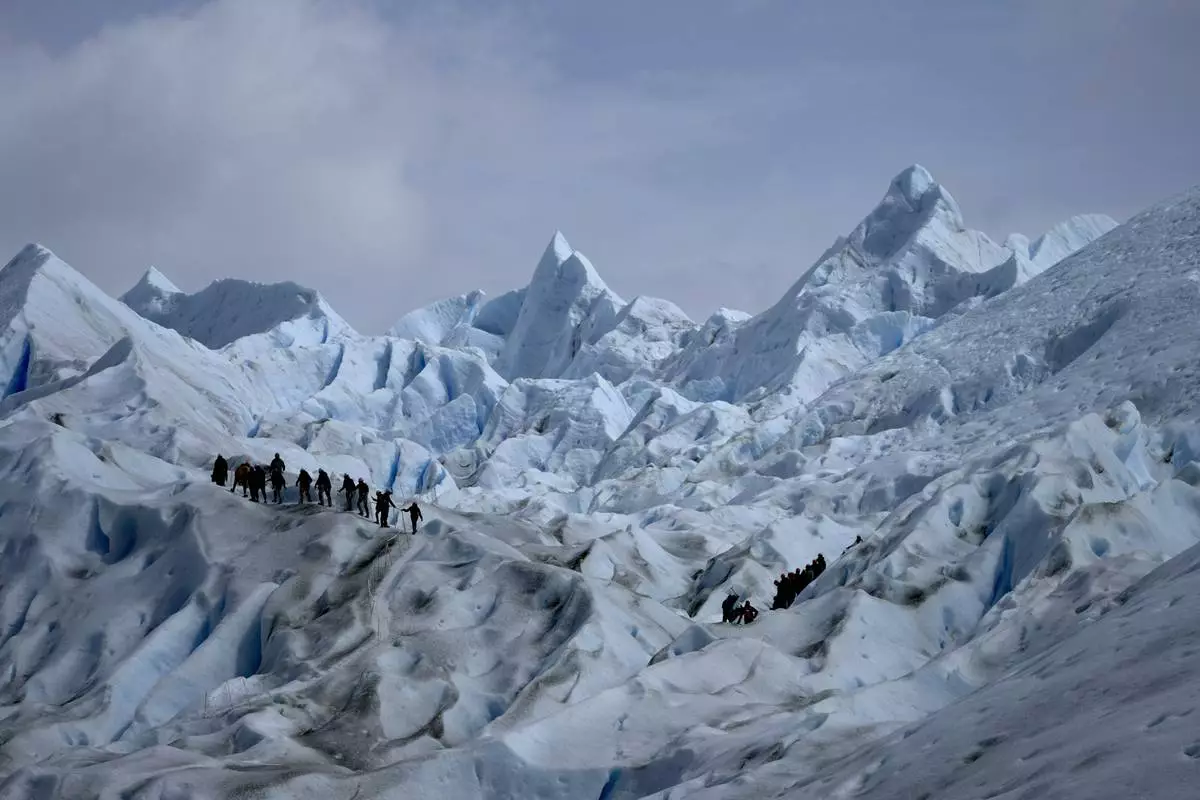
FILE - Tourists walk on Perito Moreno Glacier at Los Glaciares National Park, near El Calafate, Argentina, Nov. 2, 2021. (AP Photo/Natacha Pisarenko, File)
AUSTIN, Texas (AP) — A federal judge on Wednesday found the extreme heat in Texas prisons is “plainly unconstitutional,” but declined to order the state to immediately start installing air conditioning, which could cost billions.
The ruling affirmed claims brought by advocates of people incarcerated in Texas, where summer heat routinely soars above 100 degrees Fahrenheit (38 degrees Celsius) for weeks. But they will have to continue pressing their lawsuit later in a trial.
The lawsuit was initially filed in 2023 by Bernie Tiede, the former mortician serving a life sentence whose murder case inspired the movie “Bernie.” Several prisoners’ rights groups then asked to join his legal fight and expand it to encompass all Texas prisoners.
The lawsuit argues the hot conditions in the state facilities amount to cruel and unusual punishment, and seeks to force the state to install air conditioning.
Texas has more than than 130,000 people serving time in prisons, more than any state in the U.S. Only about a third of roughly 100 prison units are fully air conditioned and the rest have either partial or no electrical cooling.
“This case concerns the plainly unconstitutional treatment of some of the most vulnerable, marginalized members of our society,” U.S. District Judge Robert Pittman wrote in his ruling on a request for a temporary injunction against the state. “The Court is of the view that excessive heat is likely serving as a form of unconstitutional punishment.”
But the judge said that ordering the state to spend “hundreds of millions, if not billions, of dollars to install permanent air conditioning in every (prison),” could not be accomplished before such an order would expire.
Pittman said he expects the case will proceed to trial, where advocates for prisoners can continue to argue their case.
He also issued a warning to the state that they will likely win at trial that the state could face an order to install air conditioning.
The judge also noted that the state Legislature, which is in session through May and writes the two-year state budget, is also considering bills that would require air conditioning to be installed in prisons.
But the Republican-majority Legislature has been hearing complaints about extreme heat in prisons for years and has not addressed the issue. In 2018, the state was ordered to install air conditioning at a unit for older prisoners and those that are medically vulnerable.
A lawyer for the plaintiffs and officials at the Texas Department of Criminal Justice did not immediately respond to emails seeking comment.
Texas is not alone in facing lawsuits over dangerously hot prisons. Cases also have been filed in Louisiana and New Mexico. One filed in July in Georgia alleged a man died in July 2023 after he was left in an outdoor cell for hours without water, shade or ice.
A November 2022 study by researchers at Brown, Boston and Harvard universities found that 13% — or 271 — of the deaths in Texas prisons without universal AC between 2001 and 2019 may be attributed to extreme heat. Prisoner advocates say those numbers are only likely to increase as the state faces more extreme weather and heat due to climate change.
In a weeklong hearing that sought the order for air conditioning while the lawsuit proceeds, people who were formerly incarcerated testified about their experiences in hot prison buildings where they said temperatures reach above 120 degrees Fahrenheit (48.9 Celsius).
They testified some inmates would splash toilet water on themselves to cool off, fake suicide attempts to be moved to cooler medical areas, or even deliberately set fires so that guards would be forced to hose down cells.
Texas Department of Criminal Justice Director Bryan Collier acknowledged that heat was a factor in three deaths from multiple causes in 2023, and that prison staff and inmates sometimes fall ill from high temperatures.
But the state disputed the hundreds of deaths in recent years alleged by the prisoner advocates, and argues Texas has implemented effective heat mitigation measures, such as providing fans, towels and access to cooler “respite” areas.
Collier also insisted he would like to have air conditioning installed across the prison system, but that state lawmakers have never agreed to spend enough money to do that.
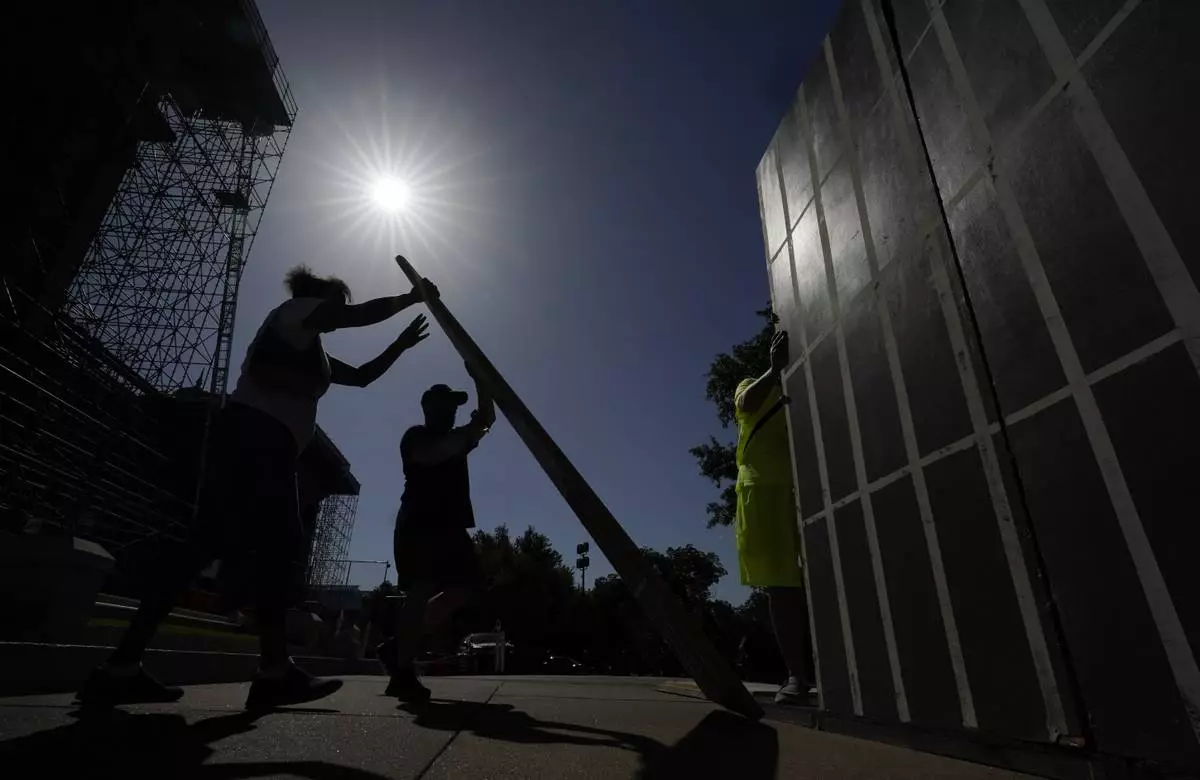
FILE - Advocates for cooling Texas prisons construct a makeshift cell before a rally on the steps of the Texas Capitol, Tuesday, July 18, 2023, in Austin, Texas. The group is called for an emergency special session to address the deadly heat effecting inmates. (AP Photo/Eric Gay, File)
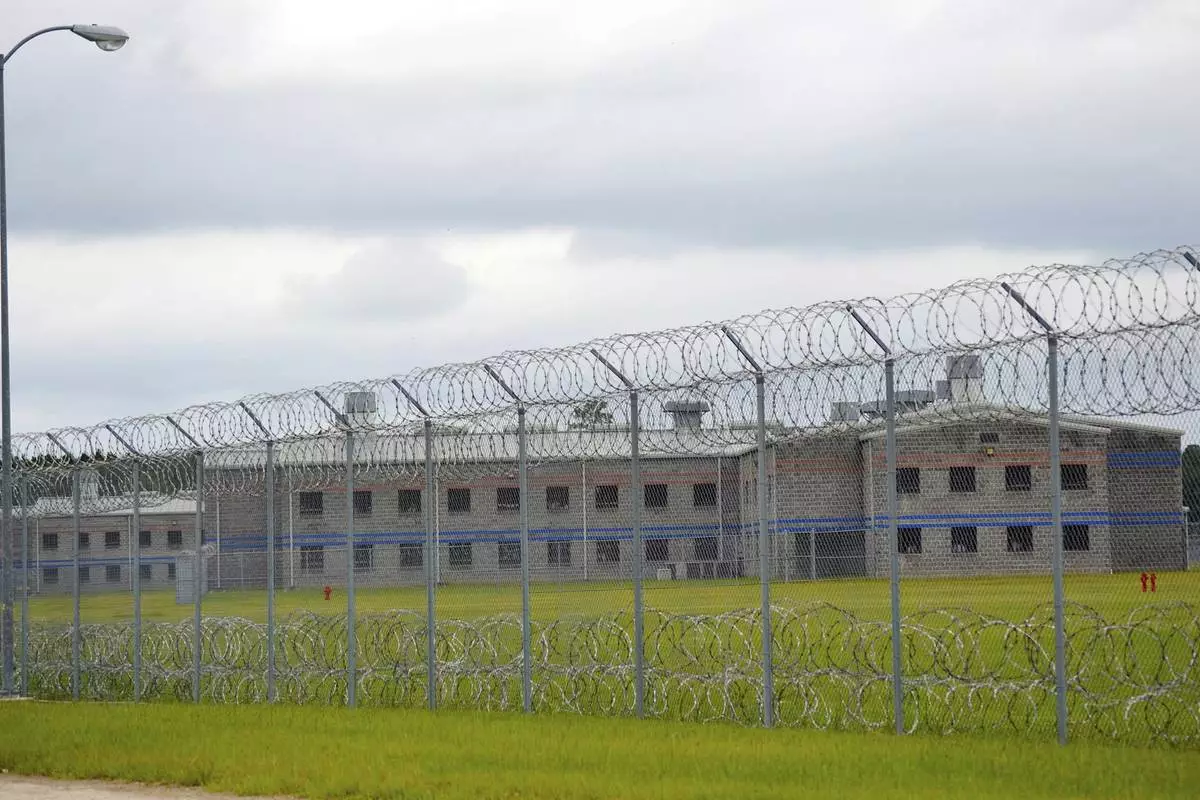
FILE - The perimeter of the Diboll Correctional Facility is seen on July 19, 2014, in Diboll, Texas. (Rhonda Oaks/The Daily News via AP, File)



